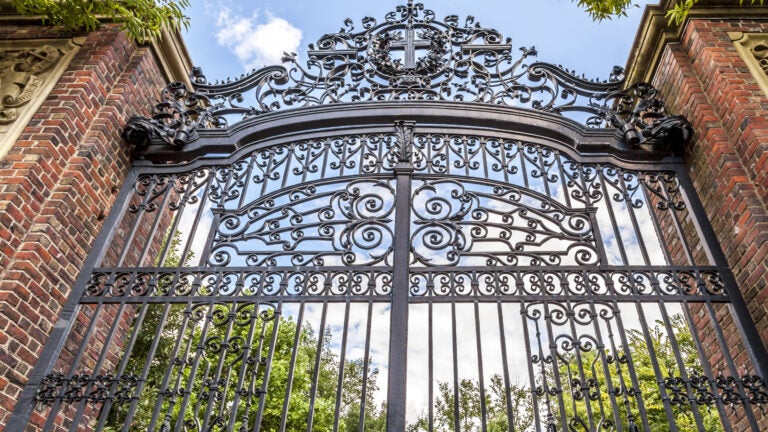Brandeis Center calls out Harvard for professor’s alleged antisemetic bias
Local News
The legal warning claims that a professor at Harvard University discriminated against three Jewish Israeli students who were in his class.

The Brandeis Center, a Jewish civil rights nonprofit, sent Harvard University a legal warning demanding “immediate action” of addressing and denouncing a professor who the organization claims discriminated against three Jewish Israeli students during the spring semester.
The Brandeis Center made the legal warning public, along with a March complaint they sent to the Harvard Kennedy School, a report from a third-party group that investigated the claims, and a letter from the Kennedy School dean Douglas Elmendorf, after Harvard’s news website published an article online praising the professor’s work in organizing and civil rights.
The professor, Marshall Gantz, taught a course during the spring semester called “Organizing: People, Power, Change,” in which students had to complete a group project that involved them coming up with a campaign that organizes around a cause. One group made up of three students — all Israeli and Jewish — came up with a project that would examine ways “to harness and unite a majority of diverse and moderate Israelis to strengthen Israel’s liberal and Jewish democracy.”
According to documents, Gantz said that the first presentation of the project received complaints from students who identify as Muslim or are from the Middle East.
“What was offensive to the other students was this idea of Jewish democracy and the fact that it was an ethnically-defined democracy, and it had been governing Palestinians since 1967 in an occupation which is anything but democratic,” Gantz said to law firm Kurker Paget, the third party investigating the matter. “It was the notion that there is this democracy, so what [the Students] were interested in doing was restoring it. From the perspective of a lot of other students, that wasn’t the case.”
The professor later told the three students they needed to change their project purpose, adding that they should specifically change the phrase “Jewish democracy” when referring to Israel and compared the purpose of the project to white supremacy.
Gantz, who also identifies as Jewish, also said the students would be responsible for the “consequences” if they did not change their project.
The report, provided by law firm Kurker Paget, found that Ganz subjected the students to bias, his response to the student project went against the Kennedy School’s principles of free speech, the incident created a hostile learning environment for the students, and that Gants “denigrated” the students’ identities. The report, however, also said Gantz did not subject the students to consequences after they kept the purpose of the project the same.
After the report was sent to the parties involved, Elmendorf wrote a letter to the students and Gantz that said he accepted the findings and “conclusions regarding the violations of school policies.”
He also told the students and professor that he would meet with a counsel of colleagues to advise how to handle the incident. It isn’t immediately clear what steps were taken.
Boston.com reached out to the Harvard Kennedy School about the legal warning. Spokesperson Sofiya Cabalquinto said that Elmendorf had “accepted the findings and took action,” but would not go into further detail about what that action was, citing the matter as a personnel issue.
“Dean Elmendorf joins Harvard President Claudine Gay in rejecting hate in all forms, including antisemitism and Islamophobia,” Cabalquinto said in a statement. “As does all of Harvard, the Kennedy School stands for free expression and academic freedom while standing firmly against any form of discrimination.”
The article that resulted in the Brandeis Center publicly posting the documents detailing the professor’s alleged interactions with the students was published Sept. 26 and detailed his journey to Harvard Kennedy School as well as his decades of organizing efforts.
In the legal warning, the Brandeis Center mentioned Harvard’s recent controversies in light of the Israel-Hamas war. Criticism has mounted for the university after a student group letter solely blamed Israel’s government for the violence started by Hamas, and backlash only continued after Harvard’s administration gave a delayed response to the letter and the violence in the Middle East.
“Harvard’s failure to speak out against anti-Semitism masked as anti-Zionism has only emboldened the student groups who are now celebrating Hamas’ atrocities,” the Brandeis Center said. “The silence needs to end.”
Newsletter Signup
Stay up to date on all the latest news from Boston.com